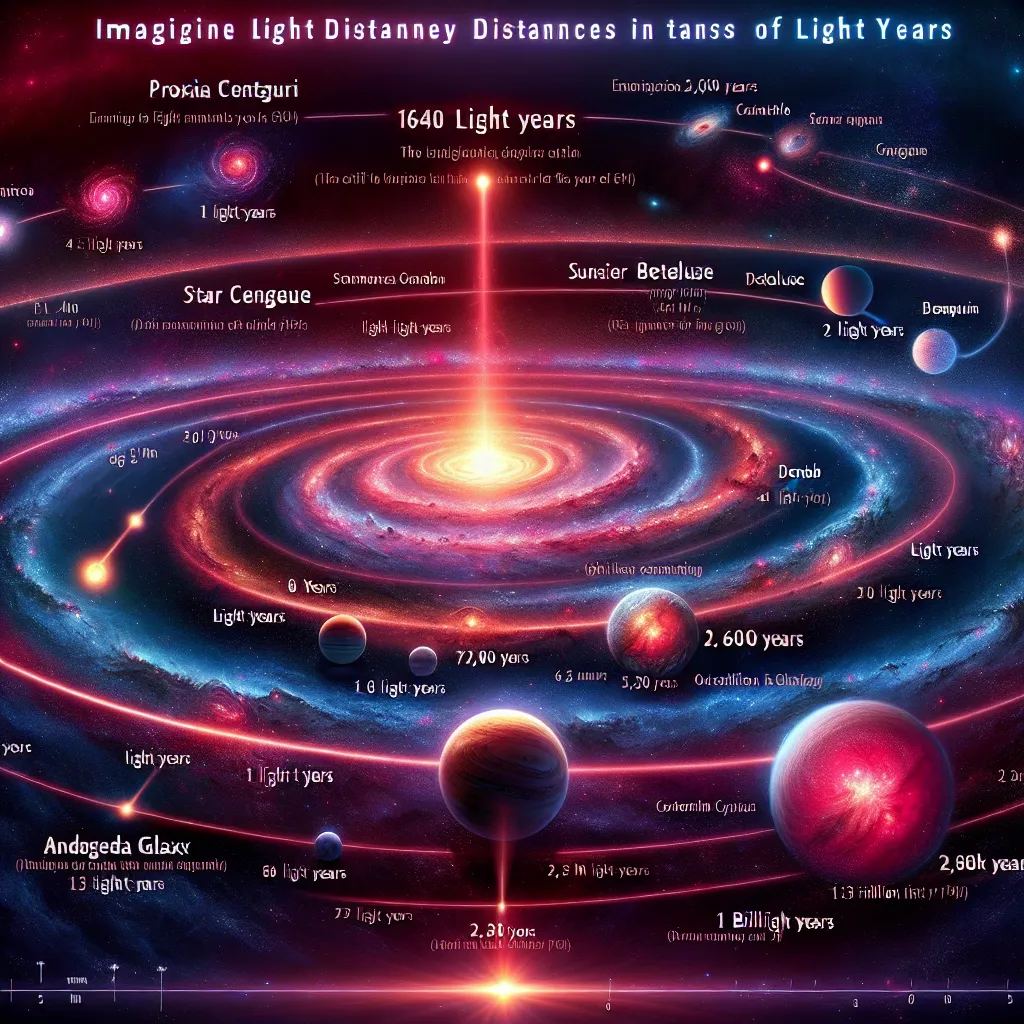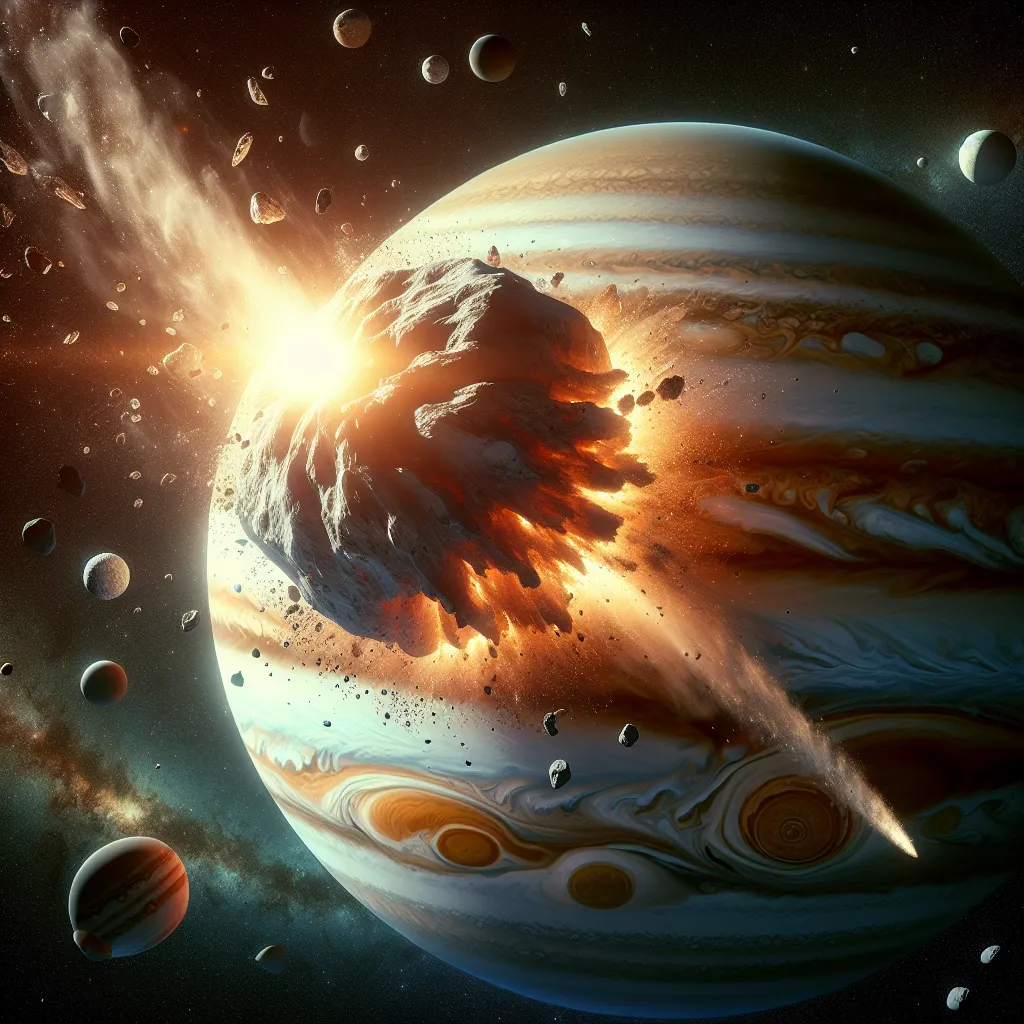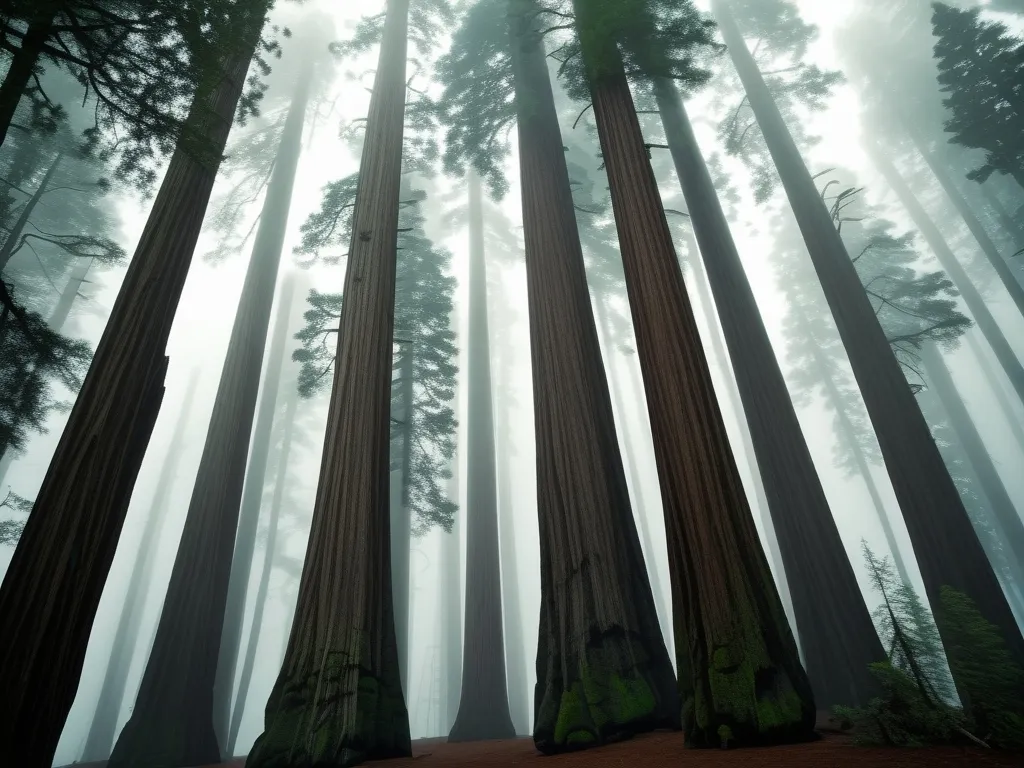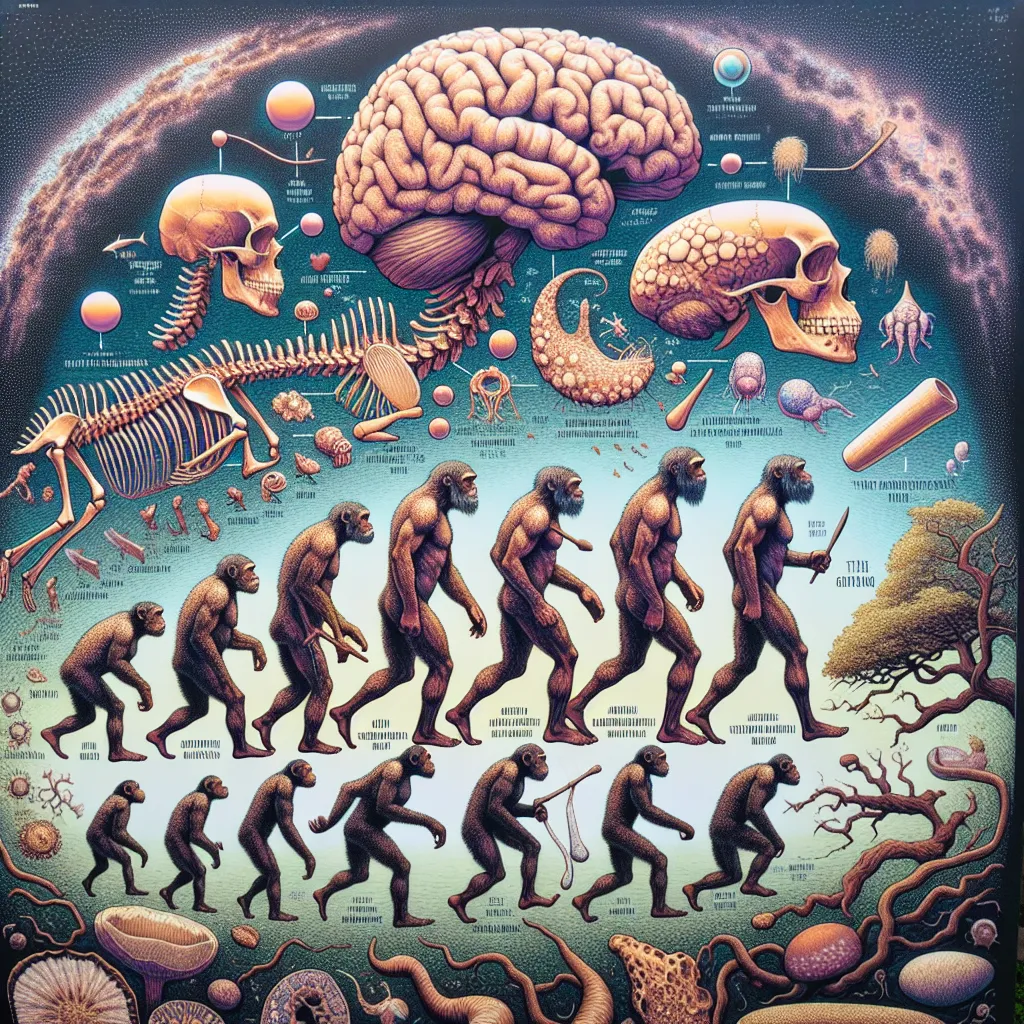Hey, I’m Nigel and welcome to “Nigel Goes to Space.” Today, let’s talk about something that often puzzles people: light years.
A light year isn’t about time, even though the word “year” is in it. It actually measures distance. Since the universe is so vast, using everyday units like kilometers or miles would result in impossibly huge numbers. Thus, astronomers use light years for easier understanding.
Light travels incredibly fast—300,000 kilometers per second. To put that speed in perspective, light can circle the Earth seven times in just one second. The light from our Sun takes a bit over eight minutes to reach us. Therefore, we say the Sun is eight light minutes away.
Reaching the edge of our Solar System takes light about four hours. But the nearest star, Proxima Centauri, is much farther—about 25 trillion kilometers away. In terms you and I can grasp more easily, that’s four light years.
Take a look at the famous red star Betelgeuse in the Orion constellation. It’s 640 light years away. The light you see from Betelgeuse tonight began its journey over six centuries ago—long before the Americas were discovered by Europeans.
Another star, Deneb, found in the tail of the Swan constellation, Cygnus, is around 2,000 light years away. This means that the light reaching us now started its voyage when the Roman Empire was at its peak.
When we stretch our view beyond our Milky Way, the numbers get even wilder. The Andromeda Galaxy, our closest neighbor, is 2.5 million light years away. This means the light we see from Andromeda started traveling toward us before humans even existed on Earth. Early hominids like the famous Lucy were walking in Africa back then.
Some galaxies are millions or billions of light years away. The farthest galaxies we can see are around 13 billion light years away, meaning their light began its journey just after the Big Bang.
Got any cosmic questions? Whether it’s about light years, astronomy, or space travel, let me know. Subscribe to the N Science Channel and join me again on “Nigel Goes to Space.”






